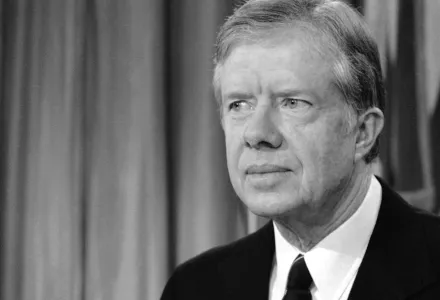Speaker: Paul Silva, Research Fellow, International Security Program
Given the costs of maintaining economic sanctions, why do sanctions that fail to coerce targets frequently persist for many more years after their imposition? The speaker contends that maintaining sanctions against a recalcitrant target, even long after their imposition, enables states to shield their reputation for sanctions resolve from the reputational damage they would incur from capitulation. This insight raises another question, however. If states have strong incentives to maintain sanctions to protect this reputation, then why do we occasionally observe states lifting failed sanctions?
The speaker argues that public demands from allies to lift a sanctions program provide diplomatic cover, which minimizes damage to their reputations, for states to lift failed sanctions. Complying with such demands enhances alliance cohesion through eliminating an intra-alliance grievance that adversaries could exploit to split the allies and reducing incentives of the sanctioning state’s allies to hedge against it.
Leveraging his original dataset of all sanction programs from 1950 to 2022, the speaker shows that his theory powerfully predicts that states a) tend to maintain failed sanctions in the absence of ally pressure and b) are more likely to lift failed sanctions following pressure from allies to do so.
Drawing on recently declassified primary sources, he tests his argument by examining a prominent case of sanction failure: the U.S.-led grain embargo (1980-1981) on the Soviet Union following its invasion of Afghanistan. The case study demonstrates that while Reagan and his top-level officials believed that capitulation would damage the U.S. reputation for sanctions resolve, they concluded that yielding to ally pressure would provide the United States with a credible justification to explain the termination of sanctions not as a product of irresolution or fickleness but as a tool to enhance alliance cohesion. The speaker then concludes by discussing the policy implications for sanction effectiveness and alliance politics.
Admittance is on a first come–first served basis. Tea and Coffee Provided.






